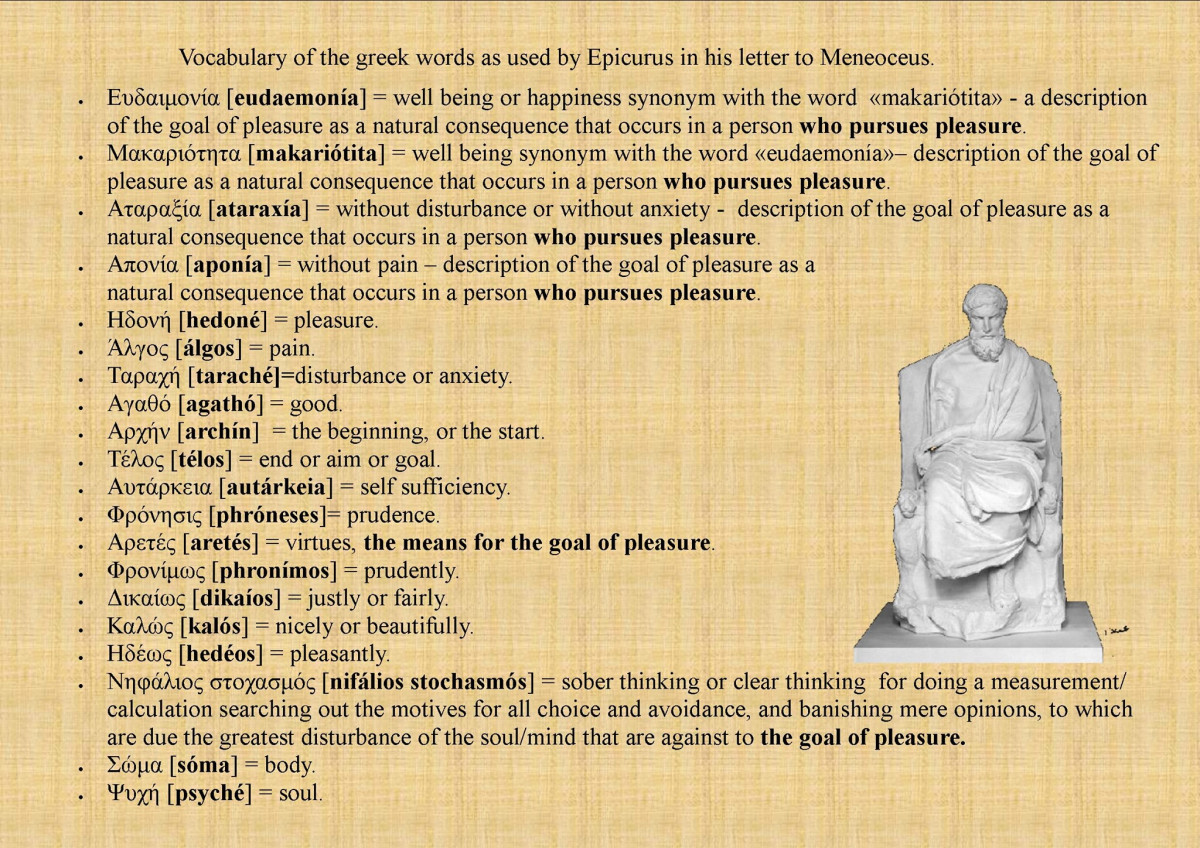What bothers me most is for example here: https://en.wikipedia.org/wiki/Ataraxia
This entry is a series of assertions about philosophical positions - but on what is it based? I see no texts citing words of the philosophers themselves for these definitions. In describing the alleged philosophical positions we are relying entirely on the commentator as authority for his own assertions.
Given how widely differently Epicurus used the term "gods" than we use that word today, I think it is entirely possible that the common definition of ataraxia, even among Greeks, may be widely different than any particular philosopher used it.
When you go beyond the root meanings, which apparently are pretty clear: (Ataraxia (ἀταραξία, alpha privative negation of tarachê -- disturbance, trouble;[1] hence, "unperturbedness", generally translated as "imperturbability", "equanimity", or "tranquility") how do we know than any of the added atttributes beyond this are what Epicurus (or any other philosopher) was saying?
For example " a lucid state of robust equanimity characterized by ongoing freedom from distress and worry. In non-philosophical usage, the term was used to describe the ideal mental state for soldiers entering battle. " REALLY? Are we really sure that a particular reference was intended to confey all this added meaning beyond just "undisturbed"?
I would think it would be much better to start with root meanings and make absolutely sure that if we add more to that, we have the addition specified by the philosopher himself, so that we do not get our conclusions polluted by commentators who may be sincere, but may be totally wrong.
Check the references to that wikipedia article. Okeefe, Warren.... In particular how it is alleged that the Epicurean view of ataraxoa revolves around katatestematic pleaures: "Katastematic pleasures were regarded to be better than kinetic pleasures by Epicurus, believing that one could feel no more pleasure than the removal of all pain."
By letting people with a particular view of Epicurus define the term which supposedly (in some people's minds) represent the goal of the philosophy you are letting them define the philosophy itself.
This is very dangerous. - to allow a single word definition to overrule and decide the outcome of every significant issue in the philosophical debate - and that's just what Jason L was suggesting yesterday - he's suggesting that we NOT translate it and just go with the definition war that is being dominated by the Okeefe versions of epicurean philosophy. All someone has to do is flip over to that wikipedia definition, believe that it reflects Epicurus, and they are - rightly - going to be totally turned off to Epicurus.



